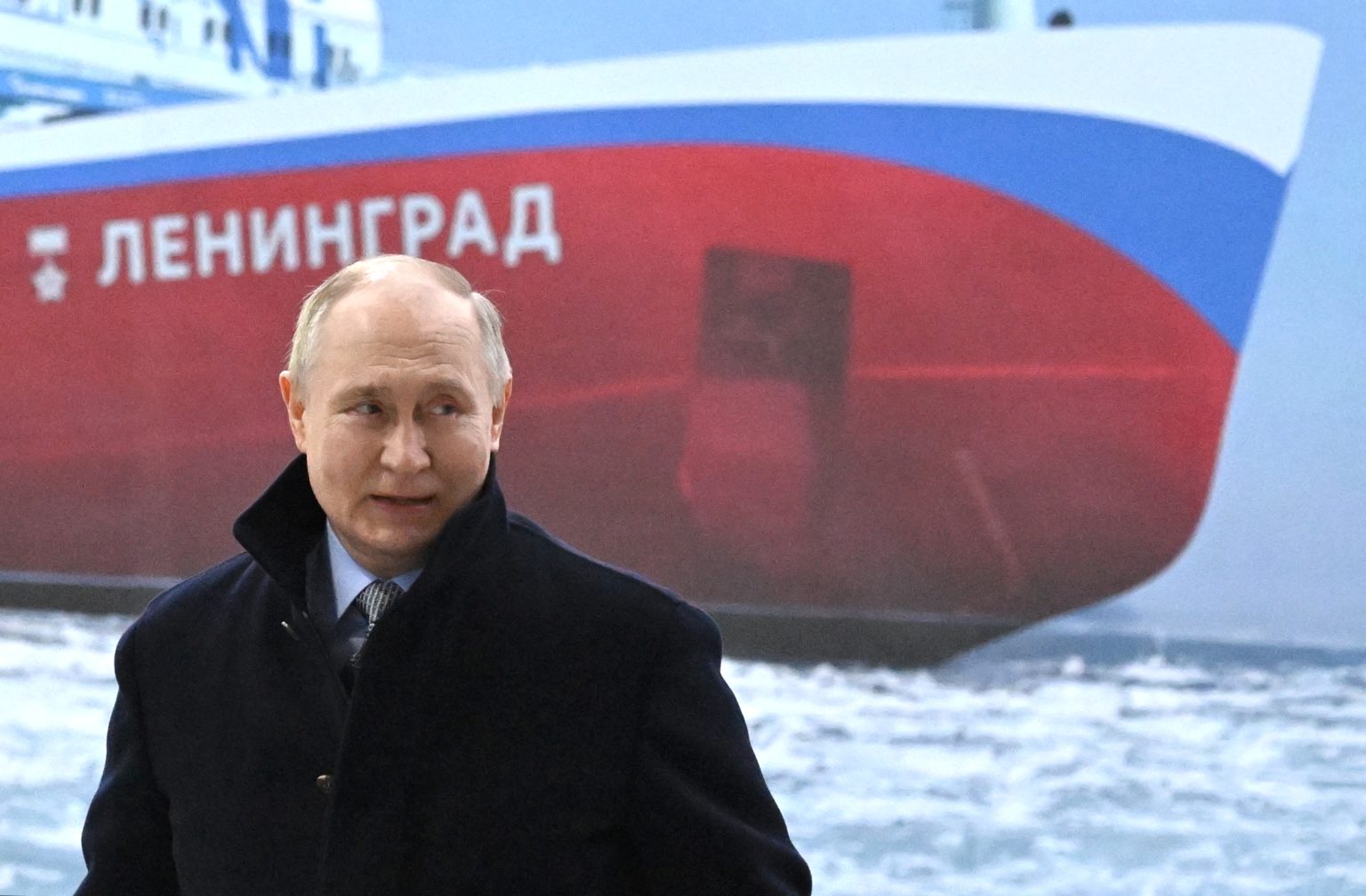Vladimir Putin has ordered his prime minister to create a shipbuilding plan for the next decade within two months, after Western sanctions have hindered the construction of a large civic fleet in Russia. The sanctions, imposed since Putin’s invasion of Ukraine, have cut the supply of foreign technology crucial for Russia’s military and industry sectors. Head of Russia’s Fisheries Agency, Ilya Shestakov, informed Putin that only 22 out of 105 planned fishing vessels had been built due to the lack of “actively used” western technologies.
The Central Research Institute “Kurs” reported that 84 percent of Russian ships under construction may not be delivered on time, with 28 out of 49 vessels scheduled for delivery needing redesign. While a recent order from the Kremlin did not directly mention sanctions, it emphasized ensuring the financial and technical competitiveness of vessels built at Russian shipyards. The plan must focus on developing production capacities, funding through preferential interest rates on loans and money from the National Welfare Fund, and construction of ships for future export deliveries of Russian products until 2035.
Putin has tasked his prime minister, Mikhail Mishustin, and officials to create the shipbuilding plan by June 15. The decree did not mention vessels intended for the invasion of Ukraine, following setbacks to Moscow’s naval capabilities due to Ukrainian strikes on the Black Sea Fleet. Russia’s shipbuilding industry has faced challenges, with reports of decreased production and funding at the Admiralty Shipyard in St. Petersburg, which builds vessels for the Black Sea Fleet. Western sanctions have forced the company to seek alternative equipment suppliers and redesign orders for fishing trawlers.
In addition to the sanctions affecting the shipbuilding industry, U.S. sanctions targeting Russian oil sales have impacted western buyers of Russia’s biggest export. A price cap banning firms from insuring, financing, and shipping Russian seaborne oil exports sold above $60 a barrel has resulted in Russia resorting to a “shadow fleet” of ships. However, disagreements over payments have led to difficulties in transporting the oil, causing tankers with 10 million barrels of Russian oil to be stranded off the coast of South Korea. Despite these challenges, Putin’s focus on developing a shipbuilding plan aims to overcome the obstacles imposed by sanctions and strengthen Russia’s maritime capabilities in the future.
The need to navigate around Western sanctions and bolster Russia’s shipbuilding industry has become a priority for Putin, who aims to ensure the competitiveness and production capacity of Russian vessels. By focusing on exports and securing funding through various mechanisms, including the National Welfare Fund, Russia seeks to overcome setbacks and increase its shipbuilding capabilities. The repercussions of sanctions, both on the shipbuilding and oil export sectors, have highlighted the challenges Russia faces in the global market. However, Putin’s directive to create a comprehensive shipbuilding plan demonstrates a strategic approach to address these obstacles and enhance Russia’s maritime presence in the coming years.


